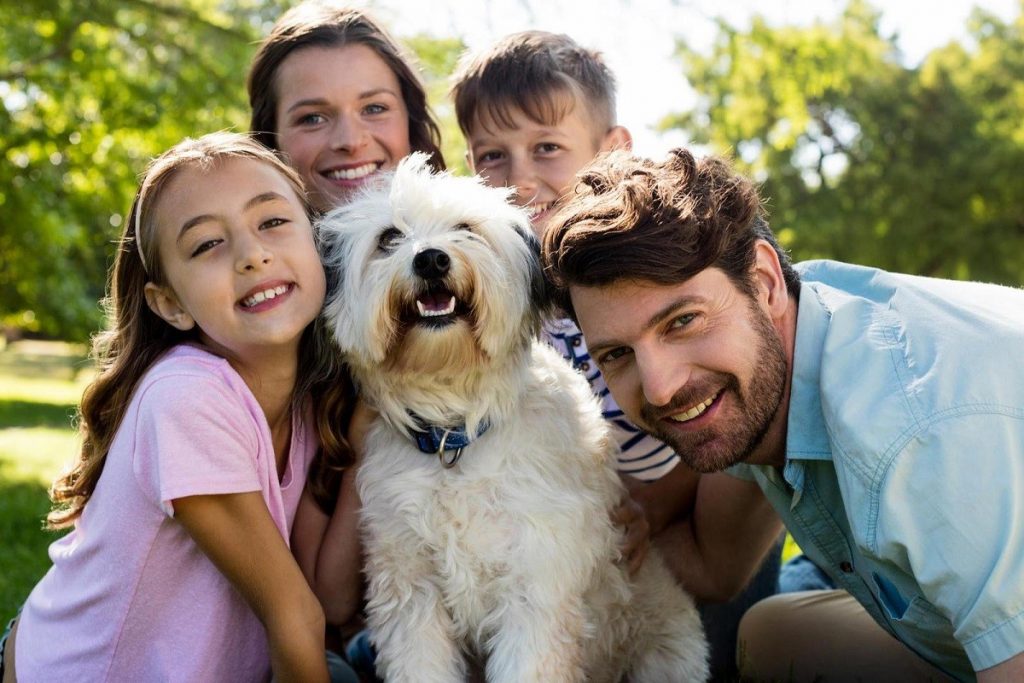Your dog is a social animal whose natural instinct is to live in a hierarchy of social structure. This requires them to establish their place in the pack order. Even in the family home, a dog displays a whole host of innate behaviours that relate to its position in the pack.
Your dog will always try to become the dominant member of its pack and you will have to manipulate the dog’s position in the pack by becoming the pack leader, often termed the role of alpha. Understanding some aspects of dog behaviour can help you gain dominance over your dog.
1. Alpha position
It is important that the dog respects your place as leader in the pack. This begins when your puppy or adult dog arrives home. It needs to be constantly reinforced. Establishing your position as alpha is not about abusing or mistreating your dog.
Dogs have great sensory organs with good eyesight, hearing and smell. These help them understand the cues of the alpha and other pack members. Give commands consistently and use short words like “sit” and “stay.” Conversely, never hit a dog but give sharp oral commands in a low voice tone at the same time.
Use the same commands for the same action, “here,” “come” or “sit” may mean the same thing to you but to a dog it may mean three different things. Dogs also pick up on your emotions and you should not display weak behaviour.
2. Permission to carry out tasks
You need to give your dog permission to carry out tasks. Never let a dog run or go through a door before you. A dog should follow its pack leader’s instructions.
Get your dog to sit and stay as you leave a room and then ask him to come to you once you have passed through. Dogs should not go in front of you up stairs or down stairs for the same reason.
Dogs love walking, as it fulfils a natural tendency to find shelter or food. When exercising your dog it should be encouraged to walk beside, or behind you, not in front. You are the leader, so, you should lead the way and your dog should be encouraged to follow you.
3. Food control
You can assert your alpha status by controlling when food is given and taken away from your dog. Your dog should seek approval from you, rather than make his own decisions. You should also not give your dog table scraps, not only because it is superfluous to their diet suggests your share your food on an equal level to your dog.
It is also important that you, and your family, eat first. You should also remove food after a period, say 30 minutes, so that your dog cannot choose when to snack.
4. Sit and stay command method
The sit and stay command method can be useful to instil dominance over your dog if you repeat it at different times. Ignoring your dog for a few days can also be effective for stubborn dominance. The obedience command “sit” should be used before you interact with your dog and they should be rewarded with a small treat to reinforce the command.
5. Height factor
Preventing your dog from sitting on your favourite chair or lying on your bed will also help reduce where your dog comes in the family pack order. If you find your dog in your path you should make your dog move rather than move around him.
Height is another factor to consider. You should never lie on the floor or be at the same height as your dog but always be higher to maintain a higher level of dominance.
6. Dominance in households with young children
The issue of dominance can sometimes be problematic in households with young children. Dogs often think that they can establish themselves as higher than children in the family pack. Getting young children to feed the dog can help reinforce the appropriate pack order.
Some dogs will nudge or push you to get attention. You should only interact with your dog on your terms, not when your dog wants you to, otherwise you are reinforcing your dog’s desire to be seen as higher in the pack than you.
7. All the things your dog owns are your possessions
You control when toys are presented and removed. You should encourage your dog to drop items on command irrespective of what it is.
At times a dog behaviourist or professional dog trainer needs to be considered and they will give you advice to follow. By following these tips your dog will have a structured relationship in your household, understand his position in your family and be a wonderful pet.

